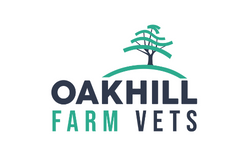Articles
Stay informed with our topical articles, all written by our farm vets.Managing Milkers At Turnout
Spring grass is attractive as a low cost feed for dairy cows. But how do we manage high yielding herds that wish to graze? The first question is what cows are suitable for grazing? Dry cows (both far-off and close-up) and early lactation cows are often much easier to manage on a housed diet. Mid […]
Read MoreNEW purpose-built farm building for 2023
We are thrilled to announce that we have plans for a new purpose-built farm building. Our practice has expanded significantly in all sectors since we started off in the original building many, many years ago, and our farm department in particular was in need of more space. The building will include a surgical suite, laboratory […]
Read MoreSalmonella case report
We recently diagnosed Salmonella Dublin on a farm which was experiencing an increase in the number of sick cows, abortions, calf scour and pneumonia and calf mortality. We had been suspicious of Salmonella for some time. A bulk tank test showed moderate levels of exposure, but we had not been able to isolate the bacteria […]
Read MoreIt’s not every day you come across an animal with an extra digit!
It’s not every day you come across an animal with an extra digit! 1 year old beltex gimmer lamb recently presented with an extra toe – also known as polydactyly. Xrays were taken here at our Goosnargh practice and Oakhill Farm Vet, Amy Bowers operated to remove the extra structure. Without removal, the lamb was […]
Read MoreGet on top of flies, before they get on top of you
With warmer weather comes the dreaded flies. Flies tend to start breeding around the end of March/April time (NOW!). Not only do flies transmit diseases such as summer Mastitis and New Forest Eye, they can negatively impact on milk production (up to 0.5L/day) and growth rates (up to 0.3kg/day) through worrying animals. In addition, they […]
Read MoreNematodirus battus
What are the effects of Nematodirus battus? Causes diarrhoea, weight loss, dehydration and death Usually in lambs eating grass at 6-12 weeks of age High-risk lambs are ones challenged concurrently by coccidiosis, newly weaned, triplets or had low colostrum intake On pasture grazed by lambs last spring Lamb-lamb spread, adults are immune A sudden cold […]
Read More